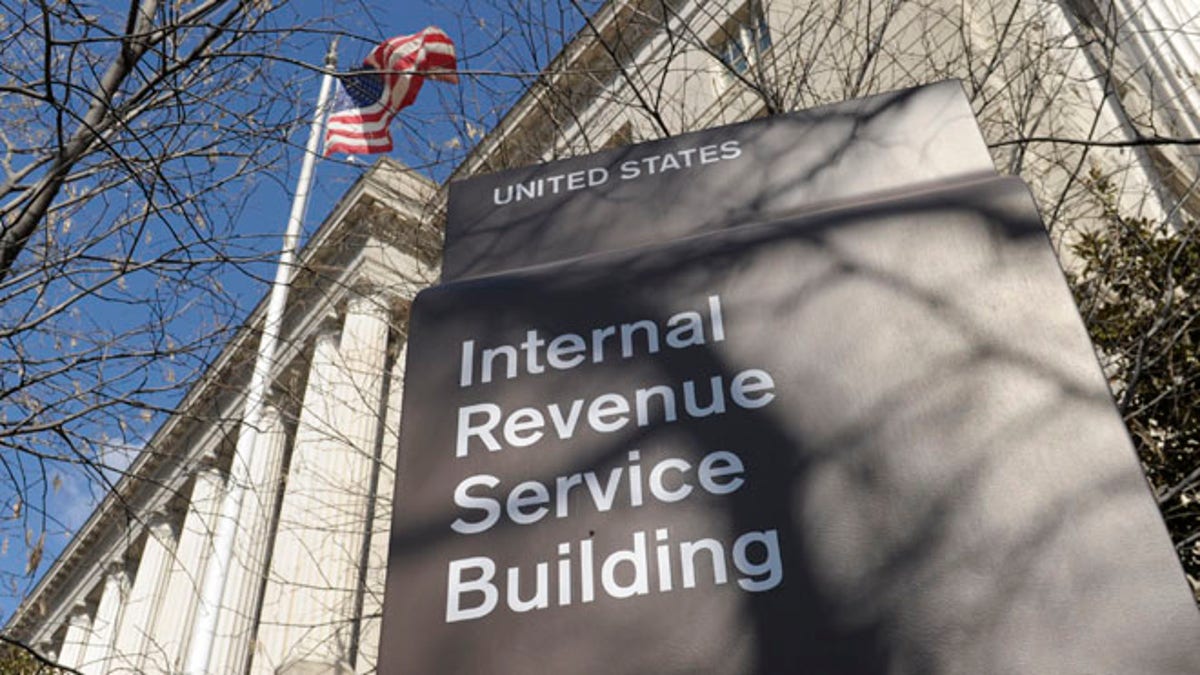The IRS will once again target conservatives and push a political agenda if the agency gets the additional $80 billion proposed under the Inflation Reduction Act, a woman who organized for a Tea Party group swept up in the 2013 targeting scandal told Fox News.
The Senate on Sunday passed the Inflation Reduction Act, which includes $80 billion in spending for the IRS over 10 years, with more than half of that intended for enforcement. That funding level could add an additional 87,000 employees over that time period to the 82,000 currently on staff, the Biden administration projected last year.
"Knowing how weaponized the IRS interest has been and still is, it's easy to imagine what it's going to become once they double the number of agents," Texas Tea Party Patriots PAC co-founder Suzanne Guggenheim.
The 87,000 additional hires would be incremental, allowing time for some attrition, according to The Washington Post. It's not clear how many of those employees would go to the enforcement office compared to other departments, like tech support or customer service.
"Everybody will suffer," Guggenheim, who fled socialist Hungary more than 40 years ago, said. "The country suffers, the businesses suffer and every single citizen."
MANCHIN'S INFLATION BILL INCLUDES BBB'S ‘MOST ECONOMICALLY DAMAGING PROVISION,’ ANALYSIS SHOWS

The Internal Revenue Service building in Washington. (Associated Press)
The IRS came under fire in 2013 for targeting conservative organizations seeking tax-exempt status, though it was later revealed the agency also targeted progressive groups to a lesser extent. Applicants with keywords like "tea party" or "patriot" in their names were automatically selected for additional scrutiny, leading to a time-consuming, expensive and burdensome process.
Lois Lerner, who headed the IRS division overseeing tax-exempt groups, apologized and resigned for her role in the scandal, though she was later held in contempt of Congress for repeatedly refusing to testify at committee hearings. Steven Miller, the agency's chief at the time, resigned at the behest of then-President Obama.

Lois Lerner, who headed the IRS division that oversaw tax-exempt groups, apologized for the targeting scandal and eventually resigned. (Chip Somodevilla/Getty Images)
"The Tea Party groups were unfairly targeted," Guggenheim said. "A few bad apples have a lot of consequences when they go unpunished."
"It takes away a lot of your possibilities to raise funds and to do the job you're trying to do," Guggenheim added. "To compete with your opponents you need to have the means to do that."
Guggenheim said she began engaging with Tea Party groups after feeling that American freedoms had eroded since she came to the country.
"The only way to be efficient is to be able to spread your message," Guggenheim said. She said the IRS's targeting suppressed Tea Party groups' freedom of speech.

Suzanne Guggenheim, who founded a Texas Tea Party group, fears the IRS will once again target conservatives. (Fox News Digital)
Guggenheim eventually coordinated and founded multiple grassroots groups around Texas. But she started as an organizer for the North Houston/The Woodlands Texas Tea Party Patriots, which later joined more than 400 other groups in a class action lawsuit against the federal government over the targeting scandal.
The Department of Justice eventually settled the case, resulting in a $3.5 million payout and an apology from the IRS.
The IRS scrutinized "groups and organizations that didn't follow their political agenda," Guggenheim told Fox News. "They never did anything wrong."
IRS BENEFITS FROM DEMOCRAT TAX BILL, WHILE TAXPAYERS ARE THE ONES WHO GET HURT
She also said that IRS officials' actions against the North Houston/The Woodlands Texas Tea Party Patriots stopped some donors from supporting the group, harming its ability to raise funds.
"It's bad for the leaders and organizer, but obviously it has a very big impact on their supporters," Guggenheim said. "They were all afraid of having the IRS go after them."
"It was a big impediment," she added.

Protesters hold signs during a Tea Party demonstration against the IRS. (Joe Raedle/Getty Images)
Guggenheim said she's worried the IRS will once again target conservatives if the agency gets juiced through the Inflation Reduction Act.
"We have seen already as through those last few years how they have come after the conservatives, how they have come after President Trump and anybody who in any way was linked to him, even just by supporting him," Guggenheim told Fox News. "We certainly do fear that our groups that continue to express their support will be targeted."
The New York Times obtained decades of Trump's tax records and published an exhaustive news report in 2020 indicating that the former president posted "chronic losses" and avoided taxes for years. Trump said the story was "totally made up," while a pair of House Republicans asked the Justice Department to launch an investigation to determine who leaked his confidential information.
Meanwhile, former FBI Director James Comey and former Deputy Director Andrew McCabe faced rare, intensive audits from the IRS under the Trump administration, The New York Times reported last month. The IRS denied that any audits were politically motivated, and IRS Commissioner Charles Rettig referred the case to the agency's internal watchdog.
BIDEN SKEWERED FOR ADMITTING ‘GOD KNOWS WHAT ELSE’ IS IN INFLATION REDUCTION ACT
Regardless, analyses have shown that beefing up the IRS could result in more audits for the middle- and working-class.

A crowd cheers speaker Glenn Beck during a Tea Party rally to "Audit the IRS." (Reuters/Gary Cameron)
Americans who earn less than $75,000 per year will make up 60% of the additional tax audits expected under Democrats' spending package, according to an analysis by House Republicans. Rettig argued that the IRS will not increase the number of tax audits performed on households earning less than $400,000.
"This is a big risk, and this is not what our government agency should be for," Guggenheim told Fox News. "They should be there to serve the people, not to harass them."
CLICK HERE TO GET THE FOX NEWS APP
Guggenheim, who lives near the southern border in Texas, said the government needs more border patrol agents, not IRS agents.
Republican Sen. Rick Scott tried to add an amendment to the Inflation Reduction Act prohibiting IRS agents from being hired until Border Patrol could double its own force, but that effort was voted down.
"The IRS has too much power," Guggenheim told Fox News. "They use it politically instead of using it to do their job like they should be, which should be, in fact, helping the taxpayer."
Thomas Catenacci contributed to this report.






